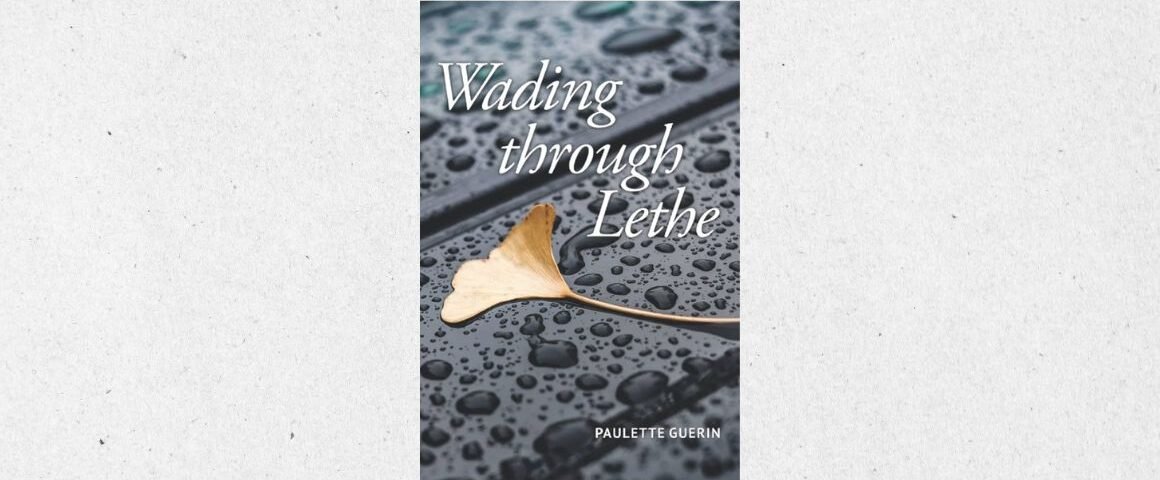Wading through Lethe. By Paulette Guerin. Athens, GA: FutureCycle Press, 2022. 84 pp. $15.95 (paper).
Greek mythology held that the waters of five distinct rivers ran through the bowels of the underworld. That Paulette Guerin has chosen as her theme the river of Lethe—forgetfulness— illustrates how pervasive has been the Christianization of paganism in the West. The shades wandering the underworld, having forgotten all goodness and beauty from their lives in the world above, are consigned to an eternity of despair and suffering. Yet forgetfulness, in this volume of poetry, is seen as a good, as amnesia becomes forgetfulness of evil. Dante famously repurposes this metaphor as an image of salvation. When the pilgrim is baptized into the Lethean stream (Pur. 31), all memory of sin is erased, evocative of the Psalmist’s affirmation that as far as the east is from the west, so have our sins been erased from the memory of God (103:12). Guerin borrows from this tradition, recounting aspects of childhood, college life, young love, and sojourning abroad. With Dante in the background and Christ in the foreground, she illustrates how simple aspects of life are painted with significance when viewed as signposts toward the heavenly city.
Guerin imitates her master Dante, carefully structuring her plot into three parts on the journey toward Paradise. The past preoccupies Part I, wherein we are treated to glimpses of the speaker’s childhood. Rural farm life pervades these poems, and we catch ephemeral snippets of learning life under the loving direction of her grandmother, of her instinctive connection to the land, of the young loves that could not last. Poems like “First Communion” beautifully communicate the tension between anticipation and fear as a child enters into a larger spiritual world. “Ghost Town” emphasizes this spiritual trepidation, seeing teenage steps toward love as reflective of a spiritual loss of innocence. And several poems, like “Grandmother” and “Funeral Wreath,” among others, view the permanence of death from the perspective of youth, touching on dread ringed with infernal loss.
In Part 2, the speaker draws us out of her hometown into the living history of Italy, each corner both ancient and modern. Young love grows into the passions of adulthood, but still distant and imperfect. Here the speaker feels intently the pull of sin and the need for redemption. In fact, the reader follows the speaker through a slow descent into the inferno, as our tour guide points out the haunts of the damned. Perhaps unsurprisingly, Dante looms largely in these texts—literally, as in “Monument to Dante,” and figuratively, as alluded to indirectly throughout in several poems like “Hurricane Party, East Laville Hall” and “The Eternal City.” But it is in the Italian poems that we feel more keenly this possibility of salvation. The sins highlighted prominently in this section are remembered but robbed of their dominating power, purged through the maturity that accompanies pilgrimage.
In Part 3, we return home to America, yet here the homecoming is not paradisal but purgative. The speaker burns away her mistakes, though feeling still the sting of loss. Our human fear of losing our self prevents us from complete immersion and the final erasure of memory where purgation is not total. We feel this self-awareness keenly in poems like “At the Coffee Shop” where past, present, and future all converge on the speaker, and she witnesses the changes she has and will undergo. “Cleaning Out the Attic” holds out the objects of one’s life and tragically reminds us that mementos can only draw out memory; it may be that meaning may sharpen through time, but so too will the loss of those days when today’s mementos were yesterday’s reliable furniture.
From a technical standpoint, Guerin’s verse is direct, even prosaic in character. Some poems, like “Daffodil” and “Ginkgo,” are short but thoughtful observations emphasizing the ephemeral in nature. Filled with color and familiarity, she brings the reader into her world to help him find the sacred in the mundane, and the human in the divine. Her lines are unevenly divided, creating a conversational rhythm and heightened awareness to the natural world that feels authentic and inviting. Most poems are written in open form, composed as too-brief reflections, whispers that disappear the moment we hear them. Like the past, one cannot wander forever in the language, for we become alert to its living power only to lose it in the recognition.
Her speakers are acutely conscious of the broken world around them. They meditate on the loss of innocence, on the sorrow of fragile things, on the emptiness of what might have found culmination. Eros seems foremost on Guerin’s mind, especially when the forks of love take different directions—and here, too, we easily recall the heartrending distance between Dante and Beatrice. She writes without the idealism of youth or the hardening of the aged, but with the heavy burden of maturity. Romance is not diminished because it is temporary; rather, its temporality is its refinement. We must love, she affirms, because we must lose—and find God in the losing.
Most significantly, the poet takes us on a journey through memory’s waters that is as autobiographical as it is universal. Lethe should induce forgetfulness as we remove the memory of sin and prepare our hearts to receive heaven. As we conclude the pilgrim pathway with “Next Life,” we are ushered into eternity not with a false innocence, but with a settled confidence that remind us we can never go back—nor should we desire to.
But perhaps that is the point. After all, our lives become a journey—either toward Babylon or Jerusalem, as St. Augustine of Hippo reminds us. Either direction will be filled with suffering, but the road toward Jerusalem, which passes through Lethe, will bring renewed life to the past, purpose to the present, and reward in the future.






'Book Review: “Wading through Lethe”' has no comments
Be the first to comment this post!